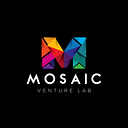Mosaic Mashup: Exploring the Future of Mobility with Yadia Colindres and Sarah Hung
Organized by Mosaic Venture Lab and Google Women Techmakers Taiwan, focused on design car user journeys and transformation of smart cities.
Mosaic Mashup is back! This time, jointly organized by Mosaic Venture Lab and Women Techmakers Taiwan, invites Yadia Colindres and Sarah Hung to lead us to explore the “Future of Mobility” together.
- Sarah Hung , Strategy Designer at Business Models Inc., presented on “Design user journeys to embody future mobility experience.”
- Yadia Colindres, Deputy CTO of UnaBiz, spoke on “Digital transformation smart cities as an end to end solution.”
With participation from attendees across roles like entrepreneurs, engineers, designers etc., the event enabled thought-provoking conversations around designing better mobility solutions.
Envisioning Future Mobility Experiences
Applying user-centric design principles to shape future mobility experiences, the speech shows how the focus is shifting from vehicle ownership to entire user journeys. Trends like vehicle electrification, autonomy, sharing, connectivity and sustainability are also emerging. But enhancing user experience remains core.
Applying service design techniques helps identify pain points across mobility journeys. User research provides insights on behaviors and needs. Journey mapping visualizes end-to-end experiences, highlighting innovation areas. Developing personas representing different user segments allows designing for diverse mobility needs.
The mobility ecosystem has various stakeholders beyond just end-users, including solution providers, infrastructure operators and regulators. Collaboration between them is vital. Emerging experience paradigms like seamless multi-modal journeys, inclusive mobility, in-vehicle personalization, voice and gesture interactions etc. Leveraging data and connectivity allows providing hyper-personalized, contextual mobility services. Sustainability should also be integral to the experience — for instance, encouraging eco-friendly behaviors through gamification.
Overall, human-centric design will be crucial to fully leverage future mobility tech innovations by understanding diverse user contexts.
Case study: NIO 蔚来 — aims to build a community starting with smart electric vehicles to share joy and grow together with users. NIO differentiates itself through its continuous technological breakthroughs and innovations, such as its industry-leading battery swapping technologies, Battery as a Service, or BaaS, as well as its proprietary autonomous driving technologies and Autonomous Driving as a Service, or ADaaS.
Developing Truly Smart Cities
How technology can help build smart cities by bridging gaps in data collection and enabling remote monitoring? Core components for smart cities include connectivity, sensors, big data analytics and automation.
Integrating these allows collecting data, monitoring assets in real-time and driving decisions through insights. While governments need to invest in digital infrastructure, businesses can provide the required expertise. Key areas where technology can drive improvements include transportation, energy management, water distribution, waste management, security, pollution control and healthcare.
However, Taiwan faces challenges like lack of ubiquitous connectivity, high costs of implementation, interoperability issues between vendor systems and cybersecurity risks. Adopting open standards and APIs for different systems to interconnect is crucial. Cloud computing enables centralized monitoring while reducing hardware costs. Emerging 5G networks provide the high speed, low latency connectivity essential for smart cities, alongside technologies like AI and edge computing.
Overall, developing smart cities requires close collaboration between government and businesses in Taiwan, alongside common platforms and open standards.
Key Perspectives from Industry Experts
The event featured an insightful panel discussion between the two speakers, moderated by Jade Cheng from Mosaic Venture Lab and Eva Chu, Google WTM Taipei Ambassador.
On smart city development in Taiwan
The biggest barrier is lack of digital infrastructure, unlike more dense cities globally. Requires coordinated public-private efforts. Many current projects are fragmented vendor-specific solutions. Needs common platforms and standards. Opportunity to strengthen industry collaboration with Taiwan’s strong research base in IoT, AI and mobility.
On innovative mobility solutions
Usage based insurance models leveraging driving data.
Integrated mobility platforms like Whim app in Finland; micro-mobility solutions like Lime; flexible vehicle subscription models from automakers likes Porsche Passport.
On mobility shifts in Taiwan
EV adoption will accelerate — charging infrastructure needs to scale up. Autonomous public transport to enhance safety and access. Micromobility and multi-modal journeys will gain share in cities.
On designing inclusive mobility
Human-centric processes like user interviews provide mobility insights across segments. AI can assist users with impairments. Lack of diversity in historical vehicle designs — needs to evolve.
On optimizing in-vehicle experiences
Differentiate driver versus passenger interactions to minimize distraction. Leverage voice, conversational AI and displays for entertainment. Avoid feature overload — focus on contextual experiences.
On data privacy
Consumers lack awareness of risks but sentiment improving. Asia has less stringent policies currently but may evolve with demands for data rights. Brands need transparency in declaring data practices during onboarding.
Opportunities for Taiwanese startups
Leverage hardware and electronics capabilities for connected mobility. Talent in AI, cloud computing and data analytics. Close understanding of local consumer needs and APAC markets. Integrate solutions with platforms of global corporates.
The future promises more connected, intelligent and experiential mobility. Unlocking the possibilities requires continued collaboration between policymakers, technologists, designers, businesses and everyday users worldwide. Events like Mosaic Mashup that enable thoughtful cross-domain conversations will be key to human-centric mobility.
Text / Jade Cheng
Photo / Doris Lin
Cover / Photo by Markus Spiske on Unsplash
About us
Mosaic Venture Lab, powered by Audi AG and Continental AG, is a product development-focused accelerator based in Taiwan. We have a strong focus on smart mobility — Mobility Services, Electrification, Human-Centric / New-data Driven Services, Sustainability, etc. Follow us on: LinkedIn | Facebook | ACCUPASS
